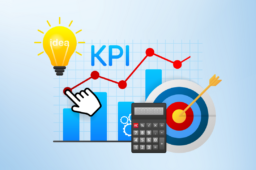
Future Trends in Project Management: Staying Ahead of the Curve
- November 06, 2024
- by
- tehreem
Project management today is more challenging than ever. With the rise of AI, remote work, and rapid changes in methodologies, staying relevant feels like aiming at a moving target.
Falling behind on current trends means risking project failures, misalignment with business goals, and losing out on competitive advantages. No one wants to be left clinging to outdated methods.
Staying updated on future trends in project management allows you to harness new technologies, embrace innovative methodologies, and lead teams more effectively. This article will guide you through the latest trends shaping the future of project management and equip you to stay ahead of the curve.
1. Artificial Intelligence in Project Management
Artificial Intelligence (AI) has revolutionized project management by introducing automation and predictive insights. AI-driven tools streamline scheduling, resource allocation, and risk assessment. For instance, AI-powered analytics can predict project risks, helping project managers make proactive decisions.
Why it Matters: AI reduces the time spent on repetitive tasks and enhances decision-making accuracy, allowing managers to focus on strategic aspects. This trend is shaping a new era of data-driven project management, where insights can guide both planning and execution.
2. Hybrid Project Management Methodologies
Gone are the days when project managers had to choose strictly between methodologies like Agile or Waterfall. The new trend is hybrid project management, where managers combine elements of various methodologies to create flexible, adaptive workflows tailored to each project.
Why it Matters: Hybrid project management allows for greater adaptability, accommodating both iterative and linear project stages. This approach is especially useful for complex projects that require a balance of structure and agility.
3. Remote and Distributed Team Management
Remote work is no longer an experiment; it’s the new norm. Managing remote teams requires project managers to rely on collaboration tools like Zoom, Slack, and Asana. Cloud-based project management software has become essential, enabling teams to collaborate seamlessly across geographies.
Why it Matters: Effective remote project management fosters inclusivity and expands the talent pool, allowing companies to hire top talent from around the world. The challenge lies in maintaining communication, team morale, and accountability without face-to-face interactions.
4. Data-Driven Decision-Making in Project Management
Data analytics is becoming a cornerstone of project management. From tracking key performance indicators (KPIs) to real-time progress reports, data-driven decision-making provides insights that drive project success.
Why it Matters: With data analytics, project managers can make informed decisions that minimize risks, optimize resources, and align project outcomes with organizational goals. Data-driven project management enhances transparency and accountability, making it easier to identify potential issues early on.
5. Sustainability in Project Management
Sustainability is now a top priority for organizations worldwide. Sustainable project management involves incorporating eco-friendly practices, reducing waste, and aligning projects with environmental, social, and governance (ESG) goals.
Why it Matters: Projects that prioritize sustainability not only contribute to corporate social responsibility (CSR) but also resonate with consumers who prioritize eco-conscious companies. By adopting sustainable practices, project managers contribute to long-term organizational success and environmental impact.
6. Change Management and Adaptability
In today’s dynamic environment, project managers must be adept at managing change. This includes adapting to evolving technologies, market shifts, and team structures. Successful project managers embrace change management principles to guide teams through transitions smoothly.
Why it Matters: Change management helps project managers maintain momentum even in unpredictable scenarios. Projects that adapt quickly to change are more likely to succeed, as they stay aligned with organizational and market demands.
7. Importance of Soft Skills
While technical skills are crucial, soft skills like emotional intelligence, effective communication, and leadership are becoming equally important. Modern project managers must bridge technical knowledge with interpersonal skills to lead successful teams.
Why it Matters: Strong soft skills help project managers resolve conflicts, motivate teams, and build a culture of collaboration. These skills enhance overall project performance, leading to higher team satisfaction and productivity.
8. Cloud-Based Project Management Tools
The rise of cloud-based project management tools has transformed how projects are tracked and managed. Platforms like Monday.com, Asana, and Trello and Ontezo provide real-time updates, document sharing, and communication channels in one place.
Why it Matters: Cloud solutions increase flexibility and collaboration, especially for remote and distributed teams. These tools allow project managers to access project data from anywhere, facilitating efficient management across different time zones and regions.
9. Outcome-Oriented Project Management
Today, more organizations are shifting from an output to an outcome-oriented approach. Instead of focusing solely on deliverables, outcome-oriented project management emphasizes the value and impact of the project on business objectives.
Why it Matters: This approach helps project managers ensure that their work contributes to the broader business strategy, enhancing project ROI and aligning projects with organizational goals.
FAQs
1. What are the latest trends in project management for 2024?
The latest trends include AI integration, hybrid methodologies, remote team management, sustainability, and data-driven decision-making.
2. How is AI used in project management?
AI is used to automate tasks, predict risks, and provide data-driven insights, enhancing project efficiency and effectiveness.
3. Why are soft skills important for project managers?
Soft skills such as communication, empathy, and leadership help project managers build cohesive teams and foster a collaborative environment.
4. What is hybrid project management?
Hybrid project management combines different methodologies, such as Agile and Waterfall, to create adaptable project structures that cater to various project needs.
taying Ahead in Project Management
The future of project management is shaped by technology, adaptability, and sustainability. As we embrace AI, hybrid methodologies, and sustainable practices, project managers must continue to develop their skills, adopt new tools, and maintain a balance between technical and interpersonal competencies. Staying updated on these trends will enable project managers to lead effectively in a constantly evolving landscape.







1 Comment
Streamlining Workflows with Automation Features in Project Management Software - Ontezo Blogs
8th Nov 2024 - 10:57 am[…] Future Trends in Project Management: Staying Ahead of the Curve […]